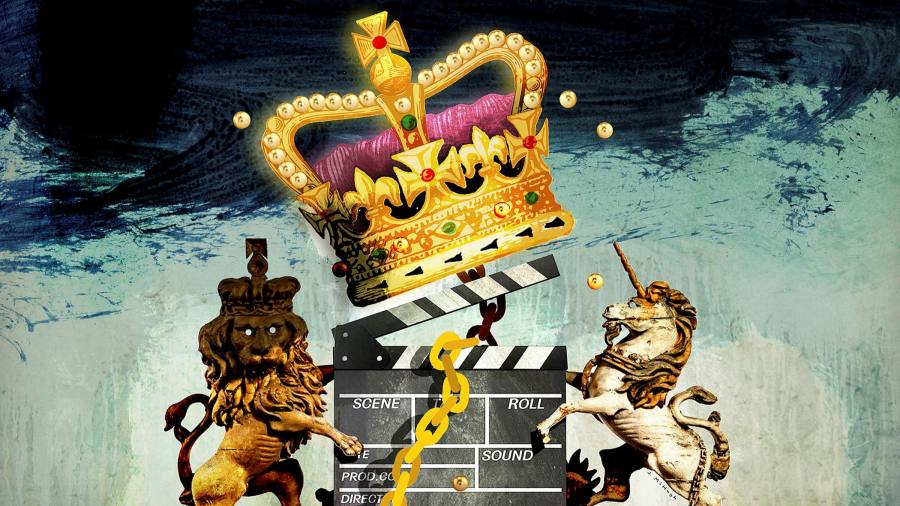[ad_1]
The writer, a former head of the Downing Street policy unit, is a Harvard senior fellow
Meghan Markle isn’t the first person to call the British royal family “The Firmâ€, the term used in her dynamite interview with Oprah Winfrey. George VI supposedly coined the phrase, long before John Grisham wrote a thriller about a mafia enterprise preying on an innocent young couple. In the royal Firm the contract is for life, and the promotion of the wider family as a brand is a “trapâ€, as Prince Harry said to Oprah.
Childish as it may seem, the saga known as Megxit is turning into a high stakes game. The trashing of the House of Windsor threatens that bit of the UK’s soft power which benefits from royal stardust. If you doubt that the Queen can influence investment and trade, remember that an estimated 23m people watched Prince William’s wedding in 2011. My American friends are lapping up a tale of stuffy, heartless Britons. The UK is itself divided between those who back Meghan for speaking out against racism, and those aghast at the couple’s self-pitying emoting about their “journeyâ€.
The whole saga could have been avoided had the British royal family not embarked on a different journey to most other European monarchies. The Spanish, Swedish, Danish and Dutch have downsized their courts, with most of their children now doing normal jobs out of the public eye. The British royals instead saddled themselves with a brand which treats not only the monarch but her relatives as an object of continual fascination and celebrity. Meghan and Harry, as stars with global reach, are the logical consequence of that policy — and they have been snared by it.
Rewind to June 1969 and a BBC documentary, Royal Family, which was watched by more than 30m people. This marked the start of attempts to modernise a monarchy which had come to seem aloof and expensive since the 1935 abdication of Edward VIII. The TV producer Lord Brabourne, Lord Mountbatten’s son-in-law, suggested using the medium of TV to humanise the Queen and her children by showing them eating ice-cream, playing with puppies and rather awkwardly watching TV.
The effect was to turn the whole family from a bunch of remote aristocrats waving from balconies into modern celebrities, followed everywhere by cameras which ultimately couldn’t be controlled. Princess Anne, the Queen’s daughter, called the show “a rotten ideaâ€. David Attenborough, BBC2’s controller at the time, reportedly warned that the film was “killing the monarchy . . . the whole institution depends on mystiqueâ€.
Subsequent media presented things in a less rosy light. In 1995 Diana, Princess of Wales sensationally described her bulimia as an “escape mechanismâ€, and spoke about the “pain inside†to the BBC. A year later Sarah Duchess of York sat with Oprah and said that royal life was “not a fairytale†and that she and Princess Diana were “like rivers . . . we want to go round the next corner, we’re hungry for lifeâ€. In 2019, Sarah’s former husband Prince Andrew did a jaw-dropping interview with Emily Maitlis, in which he admitted that years earlier he had spent several nights at the house of late sex offender Jeffrey Epstein. All in glorious technicolour.
Meghan and Harry are the latest royals in the spotlight. They are more adept at media handling but suffer from essentially the same problem as the Duke and Duchess of York: being gilded without purpose.
Harry is unlikely ever to be king. He was clearly traumatised by the loss of his mother at a young age and has always blamed the tabloids for pursuing her. His loathing of the paparazzi is understandable, even if it jars with his current desire to court publicity. His happiest times seem to have been his 10 years in the army. “It’s very easy to forget about who I am when I am in the army,†Harry said at the time. “Everyone’s wearing the same uniform and doing the same kind of thing.â€
Those two heartfelt sentences explain both Harry’s intense frustration with his life in Britain, and his obvious discomfort in the Oprah interview. Had the British royals followed their European counterparts, Andrew could have remained a naval officer and Harry a pilot. Meghan wouldn’t have found herself endlessly compared to the Duchess of Cambridge and struggling with the nameless courtiers whose presence looms heavy in the Oprah interview. The Firm, she claims, put protocol before her mental health and plotted to deny her son a title, though he is an earl and will be a prince if Charles becomes king.
The Firm is an easier target than the Queen, who remains popular and has retained a sense of mystique, notably by avoiding “overshareâ€. The Firm isn’t something that you can be half-in and half-out of, as the Sussexes have discovered. But with the share price looking volatile, it should do what any business would when faced with disruption: adapt to survive. It’s time to reduce the number of working royals and set the others free. Princess Anne’s daughter Zara Tindall is a successful equestrian, whose mother refused her “princess†title. You can encounter her, like most European royals, without any bowing and scraping, and you get the impression that this is an intense relief.
Such a move would be common sense, not capitulation. The Harry and Meghan show won’t go away; their future in Hollywood depends on an audience. But make them Mr and Mrs Sussex, and the Firm can ensure that no more children are trapped in a tragic legacy.
[ad_2]
Source link





